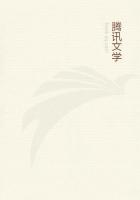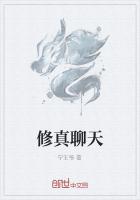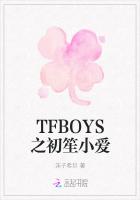IN THE PRECEDING chapters we saw that in antiquity the civilised nations of Western Asia and Egypt pictured to themselves the changes of the seasons, and particularly the annual growth and decay of vegetation, as episodes in the life of gods, whose mournful death and happy resurrection they celebrated with dramatic rites of alternate lamentation and rejoicing. But if the celebration was in form dramatic, it was in substance magical; that is to say, it was intended, on the principles of sympathetic magic, to ensure the vernal regeneration of plants and the multiplication of animals, which had seemed to be menaced by the inroads of winter. In the ancient world, however, such ideas and such rites were by no means confined to the Oriental peoples of Babylon and Syria, of Phrygia and Egypt; they were not a product peculiar to the religious mysticism of the dreamy East, but were shared by the races of livelier fancy and more mercurial temperament who inhabited the shores and islands of the Aegean. We need not, with some enquirers in ancient and modern times, suppose that these Western peoples borrowed from the older civilisation of the Orient the conception of the Dying and Reviving God, together with the solemn ritual, in which that conception was dramatically set forth before the eyes of the worshippers. More probably the resemblance which may be traced in this respect between the religions of the East and West is no more than what we commonly, though incorrectly, call a fortuitous coincidence, the effect of similar causes acting alike on the similar constitution of the human mind in different countries and under different skies. The Greek had no need to journey into far countries to learn the vicissitudes of the seasons, to mark the fleeting beauty of the damask rose, the transient glory of the golden corn, the passing splendour of the purple grapes. Year by year in his own beautiful land he beheld, with natural regret, the bright pomp of summer fading into the gloom and stagnation of winter, and year by year he hailed with natural delight the outburst of fresh life in spring. Accustomed to personify the forces of nature, to tinge her cold abstractions with the warm hues of imagination, to clothe her naked realities with the gorgeous drapery of a mythic fancy, he fashioned for himself a train of gods and goddesses, of spirits and elves, out of the shifting panorama of the seasons, and followed the annual fluctuations of their fortunes with alternate emotions of cheerfulness and dejection, of gladness and sorrow, which found their natural expression in alternate rites of rejoicing and lamentation, of revelry and mourning. A consideration of some of the Greek divinities who thus died and rose again from the dead may furnish us with a series of companion pictures to set side by side with the sad figures of Adonis, Attis, and Osiris. We begin with Dionysus.
The god Dionysus or Bacchus is best known to us as a personification of the vine and of the exhilaration produced by the juice of the grape. His ecstatic worship, characterised by wild dances, thrilling music, and tipsy excess, appears to have originated among the rude tribes of Thrace, who were notoriously addicted to drunkenness. Its mystic doctrines and extravagant rites were essentially foreign to the clear intelligence and sober temperament of the Greek race. Yet appealing as it did to that love of mystery and that proneness to revert to savagery which seem to be innate in most men, the religion spread like wildfire through Greece until the god whom Homer hardly deigned to notice had become the most popular figure of the pantheon. The resemblance which his story and his ceremonies present to those of Osiris have led some enquirers both in ancient and modern times to hold that Dionysus was merely a disguised Osiris, imported directly from Egypt into Greece. But the great preponderance of evidence points to his Thracian origin, and the similarity of the two worships is sufficiently explained by the similarity of the ideas and customs on which they were founded.
While the vine with its clusters was the most characteristic manifestation of Dionysus, he was also a god of trees in general. Thus we are told that almost all the Greeks sacrificed to Dionysus of the tree. In Boeotia one of his titles was Dionysus in the tree. His image was often merely an upright post, without arms, but draped in a mantle, with a bearded mask to represent the head, and with leafy boughs projecting from the head or body to show the nature of the deity. On a vase his rude effigy is depicted appearing out of a low tree or bush. At Magnesia on the Maeander an image of Dionysus is said to have been found in a plane-tree, which had been broken by the wind. He was the patron of cultivated trees: prayers were offered to him that he would make the trees grow; and he was especially honoured by husbandmen, chiefly fruit-growers, who set up an image of him, in the shape of a natural tree-stump, in their orchards. He was said to have discovered all tree-fruits, amongst which apples and figs are particularly mentioned; and he was referred to as well-fruited, he of the green fruit, and ****** the fruit to grow.
One of his titles was teeming or bursting (as of sap or blossoms); and there was a Flowery Dionysus in Attica and at Patrae in Achaia. The Athenians sacrificed to him for the prosperity of the fruits of the land. Amongst the trees particularly sacred to him, in addition to the vine, was the pine-tree.














